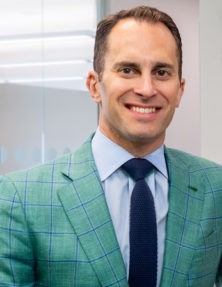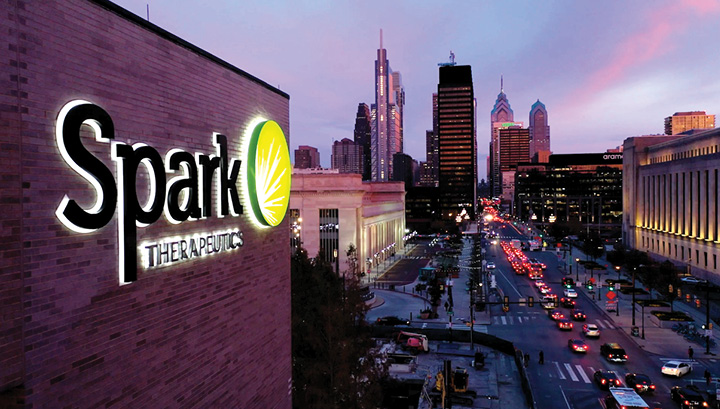
Spark Therapeutics, a member of the Roche Group, has unveiled plans for a $575 million gene therapy innovation center in Philadelphia within Drexel University’s campus within the University City neighborhood.
The 500,000-square-foot center will serve as a Roche global center of excellence for gene therapy manufacturing, facilitating collaborations with Drexel and other stakeholders in Philadelphia’s growing life sciences, which has focused on recent years on cell and gene therapy.
“As one of the U.S.’s leading biotech hubs, there is no doubt that Philadelphia will play a crucial role in the advancement of cell and gene therapies,” Roche CEO Severin Schwan said Friday in a statement. “Spark’s gene therapy innovation center creates endless opportunities for collaboration, talent development and research investment, and we’re proud to make a long-term commitment to the city and add Philadelphia to the Roche map.”
Roche—which acquired Spark for $4.8 billion in a deal completed in December 2019—said it will add Philadelphia to its list of worldwide product development sites. Construction of the new gene therapy innovation center is anticipated to begin in the fourth quarter of 2022, according to Spark.
“Since founding Spark, we knew Philadelphia had the potential to be the life sciences hub it is becoming today,” Spark Therapeutics CEO and co-founder Jeff Marrazzo stated. “From our prestigious universities and hospitals, to the investments poured annually into scientific research and the sheer volume of medical professionals that receive training here, Philadelphia has every ingredient necessary for life sciences companies to succeed. We’re honored to be part of Philadelphia’s success story and proud to feature the city in the next chapter of Spark’s story with our colleagues at Roche.”
Cell and gene therapy (CGT)—along with data-driven or “connected” health—is among key industries of Greater Philadelphia, a key reason why the City of Brotherly Love and vicinity have consistently made GEN’s A-List of “Top 10 U.S. Biopharma Clusters,” placing seventh in the most recent ranking published earlier this year.
In addition to Spark and other companies like Adaptimmune and Passage Bio, the region’s CGT anchors also include University of Pennsylvania’s pioneering Gene Therapy program led by James M. Wilson, MD, PhD, and The Discovery Labs in suburban King of Prussia, PA, where a former GlaxoSmithKline R&D site and adjacent parcels have been transformed into a “one-stop shop” for CGT development.
11,274 Jobs predicted by 2030
As of 2020, Greater Philadelphia was home to 36 CGT companies, pioneering researchers, and a CGT workforce of approximately 4,900 that could grow by up to 11,274 in 10 years, according to a report by the Chamber of Commerce for Greater Philadelphia’s regional CEO Council for Growth, the University City Science Center, and University City District’s West Philadelphia Skills Initiative.
The region’s strength in CGT was also reflected in the more than $2.9 billion in investment across 16 companies reported as of March 31 by the CEO Council.
“Since founding Spark eight years ago, Philadelphia has been part of our company’s DNA and we’re proud to continue to call Philadelphia home for many years to come,” Marrazzo said.
“Hundreds” of people—Spark did not furnish a more specific number—will be based at the facility, which will account for half of Spark’s planned 1 million-square-foot campus in Philadelphia.
Spark employs nearly 800 people company-wide, Jennifer Flaisher, the company’s Chief Human Resources Officer, told the CEO Council for Growth in a Q&A interview published December 13. Spark expects to double that number over the next five years, Marrazzo told The Philadelphia Inquirer on Friday.
Spark will occupy the center through a 99-year ground lease of Drexel’s F Lot, where the facility is set to rise at the intersection of 30th and Chestnut Streets.
Financial and other terms of the ground lease were not disclosed for the center, whose announcement marked the start of what Spark and the university said would be a long-term partnership as well as a larger commitment by the company and Drexel to sparking what they termed “positive change” in Philadelphia.
“This partnership will generate unparalleled opportunities for our students and faculty to participate in groundbreaking research and to help create and sustain the workforce that will make West Philadelphia a leader in the life sciences revolution,” Drexel president John Fry added.

